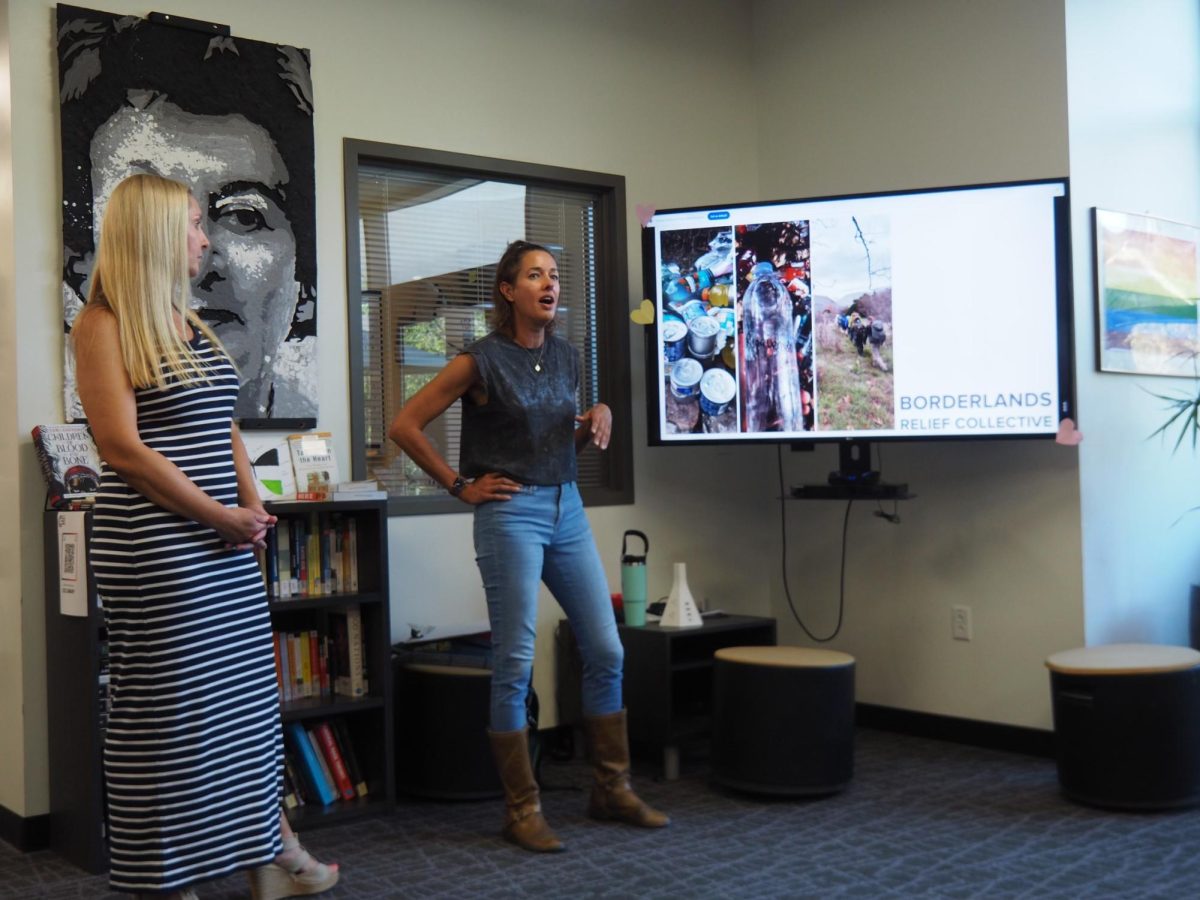Last Tuesday, Oct. 1, the Cross-Cultural Center featured the Borderlands Relief Collective (BRC) for an Activist Lab workshop covering humanitarian relief volunteer opportunities along the US-Mexico border.
Sarah and Kirsten led a presentation covering the BRC’s work, immigration politics, and how people can get involved with the collective. Kirsten is an immigration attorney who has been doing volunteer work at the border for over 8 years. Sarah has been volunteering for about a year.
The BRC’s mission is to prevent needless migrant deaths while crossing the US-Mexico border. The collective described the United States immigration policy as “dangerous by design,” emphasizing that border militarization and migrant dehumanization are ploys used for political gain by both major political parties.
“Prevention through deterrence is code for ‘We want you to die,’” said Kirsten. The volunteers noted that last Summer was particularly awful, with many migrants dying due to heat, lack of aid, and more restrictive border policies.
Kirsten says the situation has “gotten more intense every year.” The collective traditionally focused on humanitarian relief for migrants travelling through Otay Mountain, but they have expanded the scope of their relief work due to the current federal administration’s rightward shift on issues like the asylum system.
The collective does “drops,” hiking through Otay Mountain and leaving crucial supplies like water, electrolytes, first aid, and food. Reusable water filters and military rations have become more important this Summer as the climate and travelling conditions have worsened. The BRC strategically places humanitarian aid because Border Patrol and other reactionary groups often destroy it, they claim.
BRC members recalled experiences when Border Patrol refused to provide assistance since it falls outside their policy of deterrence. Emily, a peer educator in the Cross-Cultural Center who volunteers with the collective, shared her story of a nine-months pregnant Kenyan woman who was refused assistance.
Sarah emphasized the importance of their work since, without volunteers, migrants suffer. In open-air detention camps, people often reuse the same tents and resources, provided only by volunteers. Border Patrol provides nothing, claiming they do not have the resources. Only with enough pressure will Border Patrol transport people for “drop-offs” or deportation. Until then, it is up to volunteers to provide food, water, and shelter. “Other countries come to see this and are appalled,” Sarah said.
The BRC also does bike and car drops, constructs shade structures, and hosts “Welcome Tables” to aid migrants with resources and information. A particularly heavy part of their work involves recovering bodies so families can have some closure. Emily showed a photo of a memorial built for a 19-year-old boy who was missing for four days until they found his body. The area he was in is one of the most treacherous to cross. Border Patrol knows there are many migrants who fail to cross alive, but they make no effort to recover these bodies. Those who do not make the crossing are often found in dehumanizing conditions, left for days or more in high heat. Without institutional support, it is up to volunteers like those in the BRC to help honor these lives with dignity.
The collective has discovered a number of benefits in their approach to this work. As a completely self-funded collective, not a 501(c)(3) organization, the BRC is founded on nonhierarchical, leftist principles. No one is paid and there is a collective decision-making process for their work. As a collective on Kumeyaay Land, they recognize that the supposed “borderlands” are the lands of the Indigenous peoples who were the first to walk the paths they cross today. “Borders are bullshit,” they say. “It’s a construct. People have the right to freely migrate because they always have and always will.”
To learn more about the Borderlands Relief Collective, you can find their Instagram at @borderlandsreliefcollective.
For disclosure, I have volunteered with the Borderlands Relief Collective before.


